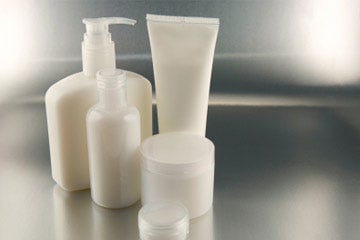Brand fatigue and the future of personal care
Glorifying a brand is egotistical, where celebrating the consumer's lifestyle is the smart way to become involved, engaged and connected with the consumer.
Constant exposure to consumer brands over the last 50 or so years has breed familiarity, but not necessarily loyalty. Some of the giants like Ford, IBM, Coca Cola, McDonalds, and Kodak have all found that out. Brands to some degree have been an end, rather than a means to achieving loyalty, and the corresponding sales brands would get from consumer devotion. Consequently we are beginning to see a new age in marketing where brand fatigue is emerging. A marketplace paradigm where branding is losing its attractiveness and power over the consumer.
Branding became the domain of the "MBA" executive in the 1980s who generally used it as a marketing tool as taught in the premier "business" and "marketing" schools. The brand was seen as the 'be it all' in marketing, replacing the 4P &Cs. Brand it, advertise it, and promote it, through loyal distribution channels, and pouring in dollars to support the brand would get you there.
The marketers of this Millennium have become lazy relying on brand and customer management as their primes. It's become the master generic strategy '101' that the majority of the 'corporate transnational' personal care industry has followed without question.
One of the major fallouts of this approach was that the brand itself is losing market value, as each incremental marketing campaign cooked up by the "MBA kids" has distorted the original intentions of their arsenal of brands. Thus the original meanings brands put across have either become lost or irrelevant to customers.
Subsequently many brand icons don't have the pull they do today and have realistically have relied on 'purchased' shelf-space and distribution to generate sales.
Think about it, people are basically buying their personal care products from what is available in front of them on the shelves.
Branding is secondary in generating the sale today. Generic products and housebrands now take up more than 25% market share in many categories.
Products don't appear to be connecting to consumers the way they used to. They have become phony with words like "aromatherapy", "soft", "environmentally friendly", "AHA" and the like splashed over them.
Product manufacturers have forgotten the lifestyle needs of their users - the first cardinal sin in marketing which has been conveniently ignored. Marketing today has been more about applying an umbrella brand, slapping on a slogan, and buying up the shelf space. The planogram has become the prime marketing tool at great cost to personal care consumers.
The brand today is facing a crisis in authenticity. Brands don't connect to their users the way they should, and have become abstractions having corporate meaning lost to consumers, rather than symbols of lifestyle trends.
Brands have tried to do something for all and thus become much weaker than companies believe they are.
This has two major consequences for the personal care industry in the future.
First, expect shorter product lifecycles. The evidence of this is already well documented.
And second, expect to see new and exciting brands from innovative companies, whose founder/innovators see and tap into trends they see emerging from peoples lifestyles. They absorb, target, and focus upon these lifestyle needs.
These new brands will potentially shake the foundations of some major brands over the next few years. They will be companies like The North Face is to outdoor wear, companies which live and breathe their consumer's lifestyles within their own brands.
This will require a 'back to the future' new product development approach where understanding lifestyle needs and developing product features and attributes around these needs will take the lead. Products have to be more closely aligned to user segments than ever before.
The product name or brand needs to reflect this, rather than recycling an old but well known brand icon in the future.
To many companies this might be too hard as they have grown too attached to their icons for their own good.
Brands must be living and breathing today to have substance and this is the key. Traditional advertising through media is out. It is no longer the prime brand developer, but should be relegated to a supporting role.
Brand ambassadors, demos and workshops within the community that are disseminated through social media, builds the brand. Go back to the community and build your brand from the grassroots and you will develop a substantive brand.
People want something different, something they can relate to, but not remotely. They want to be involved. They want first hand personal contact through a demo or event that they can become involved in.
Brands must highlight consumers, not themselves. Glorifying a brand is egotistical, where celebrating the consumer's lifestyle is the smart way to become involved, engaged and connected with the consumer.
If you walk through the aisles of the cosmetic sections through today's department stores you will see so many new brands actively engaging the customer. The classic brands now tend to be hidden in the back rows of the section.
This is the challenge the industry has today. Opportunities for visionary entrepreneurs who can define new marketscapes that reflect contemporary consumer needs will be the winners in the personal care industry over the next decade.
Originally published in the Science of Beauty July 2014
Click on subscribe so articles can be directly emailed to your inbox:




